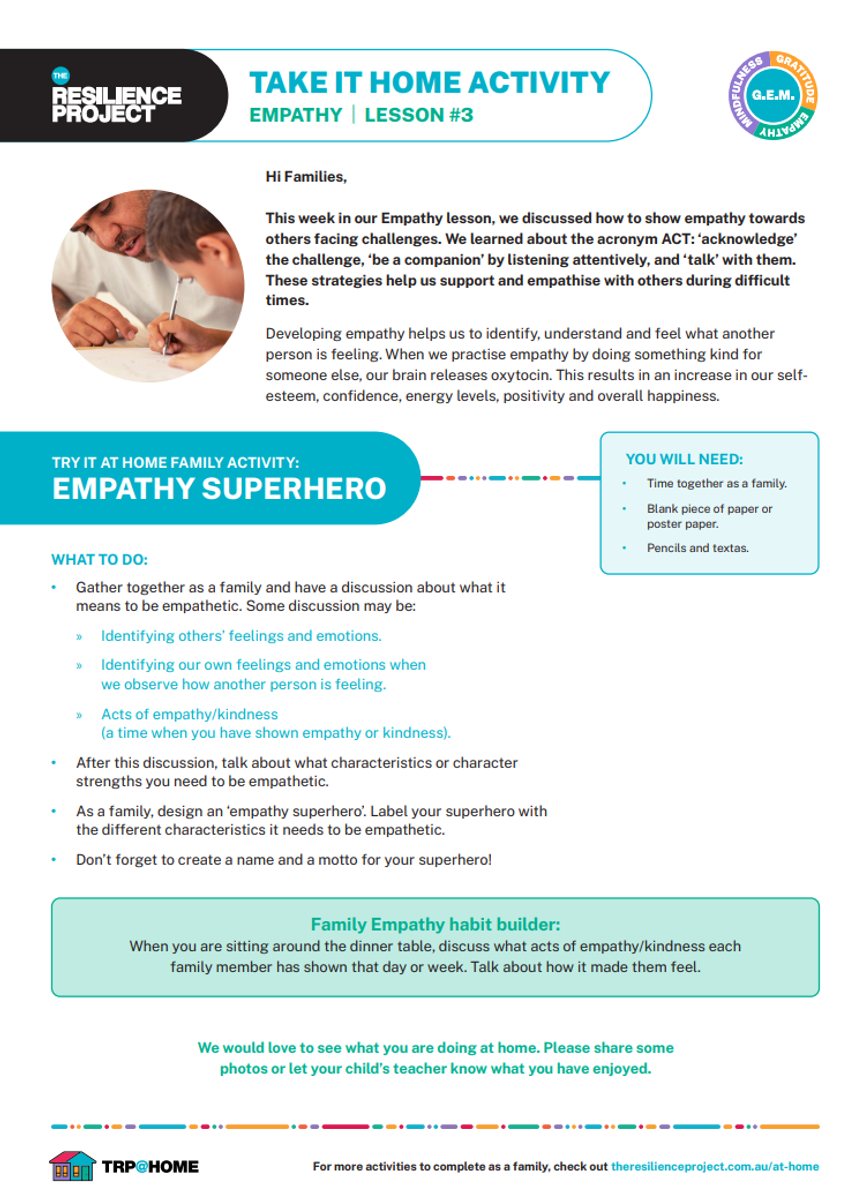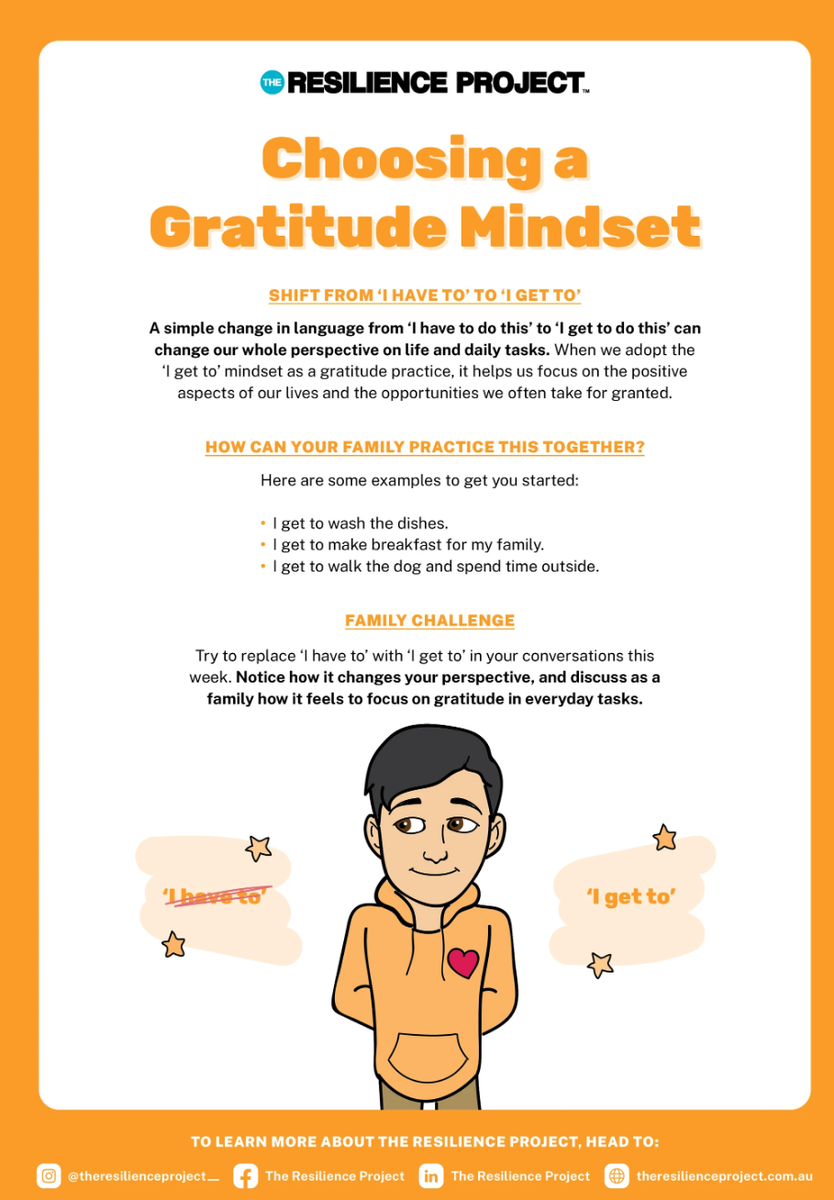The Resilience Project
WHAT is EMPATHY and WHY is it an important component of emotional well-being?

The Resilience Project
WHAT is EMPATHY and WHY is it an important component of emotional well-being?
The Resilience Project highlights the importance of empathy as a core component of emotional well-being and resilience. According to the project, practicing empathy not only strengthens relationships but also supports mental health by helping individuals feel understood and connected to others. Empathy involves actively listening to others, acknowledging their feelings, and offering support without judgment. By cultivating empathy in our daily lives, we create a more compassionate environment, whether at school, at home, or in the community.
Research from The Resilience Project shows that empathy plays a significant role in building emotional resilience. When we practice empathy, we develop a deeper understanding of others’ struggles, which can help us respond with kindness and patience. This not only helps those around us feel supported but also allows us to manage our own emotions more effectively. In challenging times, empathy enables us to stay connected and reminds us that we are not alone in facing difficulties. As we continue to foster empathy, we nurture a sense of belonging and collective strength, making us all more resilient in the face of adversity.





